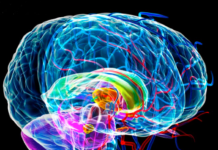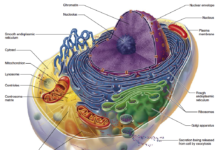By Lane Lenard, PhD, Ward Dean, MD and Jim English
Enzymes are the unsung heroes of the body – without them life would be impossible. It has been estimated that the human body contains at least 50,000 different enzymes that orchestrate the countless biochemical reactions that control all life functions.
Enzymes also play an essential role in inflammation and other functions of the immune system. Inflammation is one of the body’s most important mechanisms for protecting itself against danger. If you’ve ever had an insect bite, a sprained ankle, a sore throat, or a bad sunburn, you know what inflammation is. Inflammation is the body’s way of imposing a measured, temporary discomfort in the interest of long-term health. The five cardinal symptoms of inflammation are:
-
- Redness
- Heat
- Swelling
- Pain
- Restriction of Movement
These signs indicate that the body is bringing in more blood and immune resources, like white blood cells and macrophages, to remove microorganisms and other foreign matter. Redness is a sign that vasodilation is allowing more blood and other fluids to reach the affected area; local heat reflects the increased flow of warm blood from deep within the body; swelling (edema) is caused by the local accumulation of fluids; pain and restricted mobility arise from the added pressure due to the swelling.
Essential Regulators of Inflammatory Response
Proteolytic enzymes, such as bromelain, papain, pancreatin, trypsin, chymotrypsin, and rutin, are essential regulators and modulators of the inflammatory response. Among their important actions is a seven- to ten-fold increase in the “appetite” of macrophages and in the potency of natural killer (NK) cells. Proteolytic (protein-destroying) enzymes also degrade pathogenic complexes that can inhibit normal immune function. These immune complexes, which consist of an antigen bound to an antibody, are a normal part of the immune response. But when immune complexes occur in excess, they are a principal cause of certain kidney diseases, nerve inflammations, and a number of rheumatologic diseases, including rheumatoid arthritis. Evidence suggests that trypsin, papain, and other proteolytic enzymes can break up existing pathogenic immune complexes and even prevent their formation in the first place, enhancing lymphatic drainage. The bottom line of these actions is a regulatory or stimulatory effect on the immune system.
Proteolytic enzymes modulate the inflammatory process by a variety of mechanisms, including reducing the swelling of mucous membranes, decreasing capillary permeability, and dissolving blood clot-forming fibrin deposits and microthrombi.
By reducing the viscosity (thickness) of the blood, enzymes improve circulation. This consequently increases the supply of oxygen and nutrients to and the transport of harmful waste products away from traumatized tissue. Proteolytic enzymes also help break down plasma proteins and cellular debris at the site of an injury into smaller fragments. This greatly facilitates their passage through the lymphatic system, resulting in more rapid resolution of swelling, with the consequent relief of pain and discomfort.
Proteolytic Enzymes versus Anti-Inflammatory Drugs
Italian researchers have shown that the ability of proteolytic enzymes to reduce inflammation is equal to or superior to four powerful steroidal and non-steroidal anti-inflammatory drugs: Phenylbutazone, Hydrocortisone, Indomethacin, and Acetylsalicylic Acid.
Although individual proteolytic enzymes are useful, the extraordinary combination of these enzymes yields a combination greater than its sum. Systemic multi-enzyme therapy has proved helpful in cases of arthritis and related diseases, offering a wide range of benefits relative to anti-inflammatory, vasculoprotective, and immuno-modulatory effects.














[…] Dean, MD, Jim English. 2013. Controlling Inflammation with Proteolytic Enzymes. Nutrition Review. https://nutritionreview.org/2013/04/controlling-inflammation-proteolytic-enzymes/ 7. Plyer. Surprising Signs of Gluten Intolerance. 2013. […]
[…] As an enzyme, the papain in papaya helps to regulate the inflammatory response. It “can break up existing pathogenic immune complexes and even prevent their formation in the first place, enhancing lymphatic drainage.” (source) […]
[…] As an enzyme, the papain in papaya helps to regulate the inflammatory response. It “can break up existing pathogenic immune complexes and even prevent their formation in the first place, enhancing lymphatic drainage.” (source) […]
[…] Proteolytic Enzymes: Studies have shown that people with joint pain have been able to reduce recovery time by up to 50% by taking proteolytic enzymes, which help reduce inflammation and improve nutrient absorption. (6) […]
[…] Proteolytic Enzymes: Studies have shown that people with joint pain have been able to reduce recovery time by up to 50% by taking proteolytic enzymes, which help reduce inflammation and improve nutrient absorption. (6) […]
[…] Proteolytic Enzymes: Studies have shown that people with joint pain have been able to reduce recovery time by up to 50% by taking proteolytic enzymes, which help reduce inflammation and improve nutrient absorption. (6) […]
[…] Согласно статье, опубликованной в научном журнале Nutrition Review, исследования выявили, что протеолитические ферменты помогают уменьшить воспаление настолько же эффективно или даже более эффективно, чем некоторые противовоспалительные препараты (2). […]
[…] “Controlling Inflammation With Proteolytic Enzymes | Nutrition Review”. 2013. Nutritionreview.Org. https://nutritionreview.org/2013/04/controlling-inflammation-proteolytic-enzymes/. […]
[…] (2) https://nutritionreview.org/2013/04/controlling-inflammation-proteolytic-enzymes/ (3) https://www.ncbi.nlm.nih.gov/pubmed/21061910 (4) https://www.ncbi.nlm.nih.gov/pubmed/23405827 […]
[…] Lenard, 2013 […]
[…] Although pathogenic complexes are a normal part of the immune system, when they occur in excess, they can cause certain health conditions, including kidney diseases, rheumatologic diseases and nerve inflammations. (6) […]
[…] Although pathogenic complexes are a normal part of the immune system, when they occur in excess, they can cause certain health conditions, including kidney diseases, rheumatologic diseases and nerve inflammations. (6) […]
[…] digest protein, and they’re essential regulators and modulators of the inflammatory response.(source) These enzymes include the pancreatic proteases chymotrypsin and trypsin, bromelain (which you can […]
[…] como ciertas enfermedades renales, enfermedades reumatológicas y la inflamación del nervio. (6, […]
[…] health problems, like certain kidney diseases, rheumatologic diseases and nerve inflammation. (6, […]
[…] well being issues, like sure kidney illnesses, rheumatologic illnesses and nerve irritation. (6, […]
[…] health problems, like certain kidney diseases, rheumatologic diseases and nerve inflammation. (6, […]
[…] https://nutritionreview.org/2013/04/controlling-inflammation-proteolytic-enzymes/ […]
[…] can also add a little lemon to this mixture. Aloe vera compromises a substance named proteolytic enzymes which rejuvenate dead scalp skin cells. It also works as a fabulous hair conditioner that leaves […]
[…] right?), it’s also the mechanism by which the body protects itself from harm and infection. A 2013 Nutrition Review article explains that inflammation is important as it is your body’s natural response to injury or […]
[…] is loaded with an enzyme called papain. Papain has the natural ability to reduce inflammation (1). It also has the ability to remove excess lipids and dead skin cells, which makes papaya a popular […]
[…] [9] https://nutritionreview.org/2013/04/controlling-inflammation-proteolytic-enzymes/ […]
does anyone know the reference of the study cited above from the italian researchers who compared efficacy of proteolytic enzymes vs anti-inflammatory drugs?
[…] Nutrition Review. 24 Apr. 2013. Accessed 13 May. […]
[…] to an article in Nutrition Review, research has shown proteolytic enzymes help reduce inflammation as well as or better than some […]
[…] proteolytic enzymes, which are also known as peptidases, proteases or proteinases— can facilitate the recovery process and help you bounce back faster from your daily […]
[…] are a number of compounds found in plant-based foods that can help protect against inflammation. However, even if you do eat a healthy diet, you may not be getting enough of those nutrients on a […]
[…] Did you know that Proteolytic Enzymes help ward off inflation or reduce it naturally if you already suffer joint pain? Recent research […]
[…] to this article by Nutrition Review, proteolytic enzymes help reduce inflammation as well as, if not better than many anti-inflammatory […]
[…] Pada sebuah penelitian yang diulas dalam Nutrition Review, papain sebagai enzim proteolitik, bekerja lebih baik dari beberapa obat anti-inflamasi dalam mengurangi peradangan. Karena efek ini, papain dan enzim proteolitik lainnya juga digunakan untuk membantu penyembuhan luka dan mengurangi pembengkakan setelah cedera ataupun trauma (15). […]
[…] various health benefits. For example, papain has been shown to help reduce pain and inflammation [8] and may aid digestion too […]
[…] delicious but also anti-inflammatory due to the proteolytic enzymes that they provide. Proteolytic enzymes help to modulate and regulate inflammation levels in the body and also break down cellular waste in […]
[…] https://nutritionreview.org/2013/04/controlling-inflammation-proteolytic-enzymes/ […]
[…] digestive protein in papaya responsible for the fruit’s anti-inflammatory effects – papain (20). According to Nutrition Review, proteolytic enzymes such as papain help decrease inflammation […]
[…] Some recent studies show that proteolytic enzymes are very helpful in modulating the inflammatory process in different ways. They can reduce the swelling of mucous membranes, minimize capillary permeability, and dissolve blood clot fibrin deposits in the body. […]
[…] fatigue, cancer, and autoimmune diseases) are associated with excessive blood coagulation and/or increased levels of inflammation. Systemic enzymes have been shown to reduce […]
[…] artykułu w Przegląd odżywianiabadania wykazały, że enzymy proteolityczne pomagają zmniejszyć stan zapalny równie dobrze lub […]
[…] sebuah artikel di Kajian Pemakanan, penyelidikan menunjukkan bahawa enzim proteolitik membantu mengurangkan keradangan serta atau […]
[…] they aid in the breakdown of certain inflammation triggers. Specifically, they are thought to regulate the body’s inflammatory response through processes such as reducing the swelling of mucous membranes, helping to break down […]
[…] Papain is a proteolytic enzyme that can help to support digestion, and more particularly the breakdown of protein. This may indirectly support hormones by improving digestive function and nutrient status while reducing inflammation. Papain has been shown to reduce inflammation, pain, and support immune function (9)(10). […]
[…] 最近的研究 […]
[…] to an article in Nutrition Review, research has shown proteolytic enzymes help reduce inflammation as well as or better than some […]